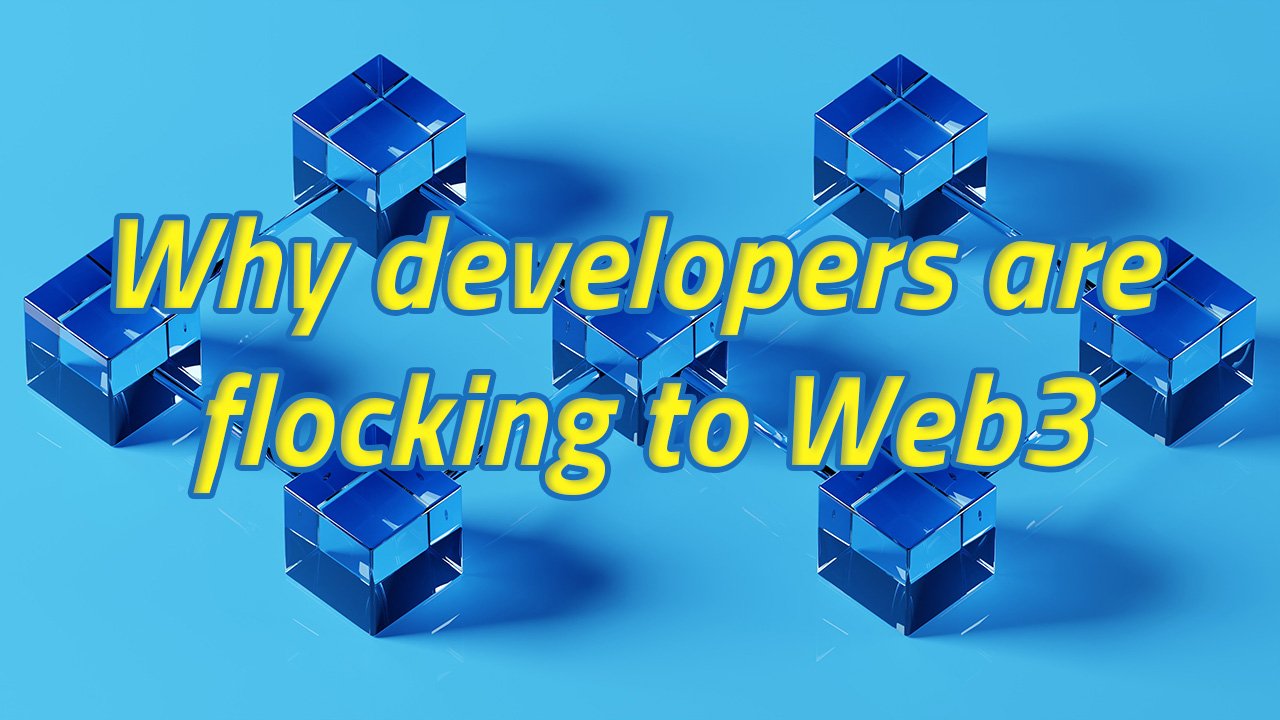From leaps in quantum computing to advancements on the metaverse front (the jury is still out, I realise), the internet as we know it is poised to change exponentially in the next few years.
Data security and privacy concerns have also paved the way for a shift towards the decentralised Web3 with blockchain technology, artificial intelligence (AI), and machine learning (ML) further fuelling this shift.
So, what does this mean for tech workers? While headlines surrounding mass layoffs have, for the most part, excluded developers and engineers, those who want to future-proof their careers are looking to Web3 for a variety of reasons beyond job security.
“Web3 represents a new paradigm for the internet—one that is decentralised, transparent, and empowers users to take control of their own data and digital assets,” says Lukas Schor, co-founder and head of ecosystems at asset management platform Safe. “This enables more equitable and sustainable business models through decentralised autonomous organisations (DAOs), which give users and developers a say in how a project is run.”
He also argues that Web3 platforms are hugely attractive for developers as they champion open-source software development and collaboration beyond company borders, which simultaneously democratises information and builds more secure and accessible platforms.
Stepping-stone
While being at the forefront of this new technology and new way of thinking is hugely attractive for tech pioneers, because Web3 is still in the relatively early stages of development, mass adoption by those who don’t work in tech is still hanging in the balance.
Part of this is down to blockchain technology being used predominantly for cryptocurrency and a lack of UX support and direction, leaving Web3 applications too tricky to traverse.
The solution to this is to evolve smart accounts as one way to tackle the problem, along with improved innovations courtesy of AI.
“Technological advancement outside of the crypto industry will drive growth in Web3 adoption. In a world dominated by AI, there comes a need for better methods of verifying identity and provenance. Web3 identification software provides a much-needed solution for this issue,” Schor details.
“That being said, I’m cautiously optimistic about mass adoption. We’ve definitely made significant strides in recent years, but we still have a long road ahead. I believe that as more developers and companies start building on existing infrastructure, and as more users become aware of the benefits of decentralised technologies, we will see a gradual shift towards a more Web3-based internet.”
In the meantime, if you want to keep your options open and position your skills and expertise so that you’re ready to pivot to a career in Web3, a new job in an organisation that has its sights set firmly on the future could be the answer.
If that is the case, the Tech EU Job Board is the perfect place to start your search as it features thousands of roles in companies that are actively hiring, like the three below.
Senior Expert (f/m/d) Digital Twin and Industrial Metaverse
Siemens AG is hiring a Senior Expert to shape the future of the industrial metaverse in a cross-functional project setup with internal and external partners. Within this framework you will work on demand-driven solution approaches and identify fields of action independently. Applicants should have experience working with digital twins, system design, automation and robotic simulation and be able to communicate in both English and German. View more details here.
Blockchain Developer, Cometh, Paris
Cometh was established around cutting-edge video games built with blockchain technology, offering players unique decentralised experiences. As Blockchain Developer you will develop, test and deploy smart contracts, collaborate with cross-functional teams to create decentralised applications and research, implement and improve rollup solutions based on Optimism. You will also be required to research and implement cutting-eye blockchain technologies and tools. See the full job description here.
UX Designer, Henlow Recruitment Group, Utrecht
As UX Designer, you will work on the further development of the API Store where business partners can explore, test and connect APIs themselves in a self-service portal. The previously designed UX prototype must be optimised by the UX designer and validated with end users. In addition, the UX prototype must be translated into a final design where new components and elements must be recorded in the design system. The new hire will also be responsible for mapping the different roles from the end users and elaborating this further into user flows. You can get more information here.
Accelerate your career today via the Tech EU Job Board
Lead image: Shubham's Web3




Would you like to write the first comment?
Login to post comments